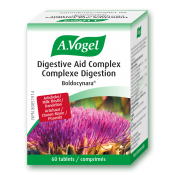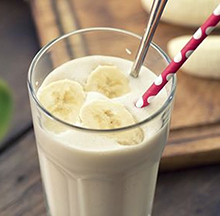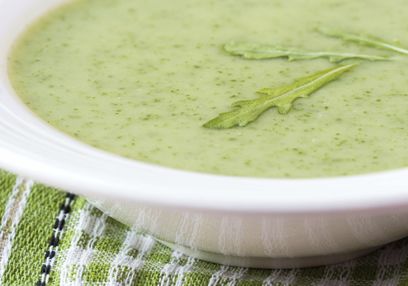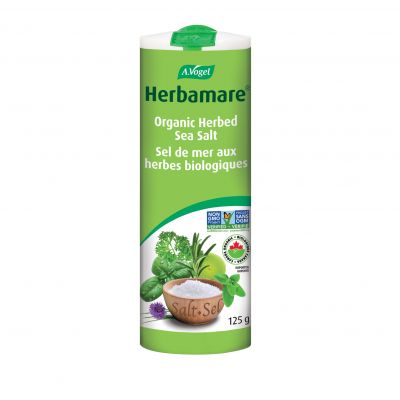The gastrointestinal system is like the factory of the body with every step and location contributing to the efficiency and breakdown of the food and beverages we ingest on a daily basis.
Starting at the mouth, the various shapes of teeth provide different functions ranging from the grinding of the molars to the tearing of the canines. This allows us to break up certain foods that could be tougher to chew. At the same time, enzymes in the saliva act on the food and start the process of digesting starch.
Then we move through the stomach where acid and agents known as zymogens process various components making up whatever was ingested. This slush-like mixture of stomach acid and broken-down food is known as chyme and quickly gets shuffled into the small intestine where some interesting bacterial residents of the body are found.
What kinds of bacteria are found in the gut?
It’s a fascinating world throughout your intestines with a variety of species that have come to colonize your body. At the beginning of life, the infant gut isn’t very diverse and species such as Actinobacteria and Proteobacteria are the kings of the castle. Over time and with exposure to different environments, the infant gut diversifies and by about two and a half years old, their microbiome resembles that of an adult. This includes species such as Bacteriodetes and Firmicutes becoming more dominant.
The number of bacteria in the gut are difficult to imagine. In the upper third of the small intestine, the area closest to the stomach, there are approximately 103-104 bacteria per milliliter of fluid content. Not much elbow room considering the high population density!
How could these bacteria produce my bad breath?
In a condition known as small intestine bacterial overgrowth (SIBO), the levels of bacteria can jump to approximately 106 bacteria per millimeter of fluid. That is a massive increase that can cause a variety of symptoms depending on the dominant species. All of these bacteria are going to need a food source and produce an increased amount of waste products.
Envision a suburban area with an appropriate number of waste trucks to collect the garbage. You lay your head down for the night and suddenly wake up to 20 condo buildings adding 20,000 people to your neighbourhood but the city doesn’t increase the amount of waste vehicles servicing your area. Garbage is going to build up and you will definitely catch a waft as you walk around.
This is similar to the bad breath experienced by the body. There are only so many cells available to remove the waste products produced such as hydrogen sulfide and methyl mercaptan amongst others. As you may be aware, gas rises, so it has a tendency to go back into the stomach, up the esophagus, and out of your mouth.
The silver lining of this is that while you may know yourself to have wonderful oral hygiene, there are breath tests that may help determine a digestive issue going on further in the body.
Are there any risk factors I should know about?
While poor oral hygiene may seem to be another obvious factor, many may not consider the impact of a cigarette.
Smokers have been shown to have higher rates of poor oral hygiene which contributes to their higher rates of halitosis. Interestingly enough, psychological factors such as anxiety, depression, and anxiousness contribute to the development of halitosis. However, despite the higher risk, individuals were highly aware and conscientious of their oral odour. This may make sense because those experiencing psychological conditions such as depression often express higher rates of substance abuse and a loss of motivation which could seep into other areas of their life such as oral hygiene.
How can I nourish the gut to keep the bacteria happy?
More often than not, individuals find themselves on websites reading about probiotics this and prebiotics that.
What do these words mean though? What is the real difference? Think of probiotics as the PROfessionals of the digestive tract. These are the active and live bacteria that contribute to our optimal digestion while prebiotics are the nutrients that the pro’s need to carry on with their day. Products such as Molkosan are whey fermented with the bacteria Lactobacillus that helps convert sugars to lactic acid, a prebiotic.
Is there anything I can take to improve my digestive health?
What a fantastic question!
Herbal medicine can often be an incredible tool with powerful effects. Certain herbs and plants are useful for improving digestion and encouraging the proper function of the gut.
Boldocynara is a complex of artichoke, milk thistle, boldo, and dandelion.
Milk thistle has been shown to be a potent liver protector or ‘hepatoprotective’, the responsibilities of which include metabolism of fats, proteins, and carbohydrates, activation of certain enzymes, and other critical functions.
Artichoke has been shown to improve how well the body tolerates glucose, a simple sugar responsible for nourishing many of the cells throughout the body.
Boldo has traditionally been used for complaints of the gastrointestinal tract and helps digestion by inducing bile secretion from the gallbladder. Bile helps to breakdown fats into smaller droplets that are easier to digest by the intestinal cells and gut microbes.
Another study demonstrated that when bile levels are reduced, intestinal inflammation and bacterial overgrowth become rampant. Finally, dandelion shows a decrease in ‘bad’ fats present throughout the body as well as increasing ‘good’ fats. Taken together in a mix like Boldocynara is an easy way to achieve these powerful benefits.
References
https://www.ncbi.nlm.nih.gov/pmc/articles/PMC1570844/
https://www.ncbi.nlm.nih.gov/pmc/articles/PMC3099351/
https://www.ncbi.nlm.nih.gov/pmc/articles/PMC3983973/
https://www.ncbi.nlm.nih.gov/pmc/articles/PMC4991899/
https://www.ncbi.nlm.nih.gov/pubmed/10235214/
https://www.ncbi.nlm.nih.gov/pubmed/25012349
https://www.ncbi.nlm.nih.gov/pubmed/25234037
https://www.ncbi.nlm.nih.gov/pubmed/25525639
https://www.ncbi.nlm.nih.gov/pubmed/25753023
https://www.ncbi.nlm.nih.gov/pubmed/25789356
https://www.ncbi.nlm.nih.gov/pubmed/26062259
https://www.ncbi.nlm.nih.gov/pubmed/28176047
https://www.ncbi.nlm.nih.gov/pubmed/29533125
https://www.ncbi.nlm.nih.gov/pubmedhealth/PMHT0022855/







